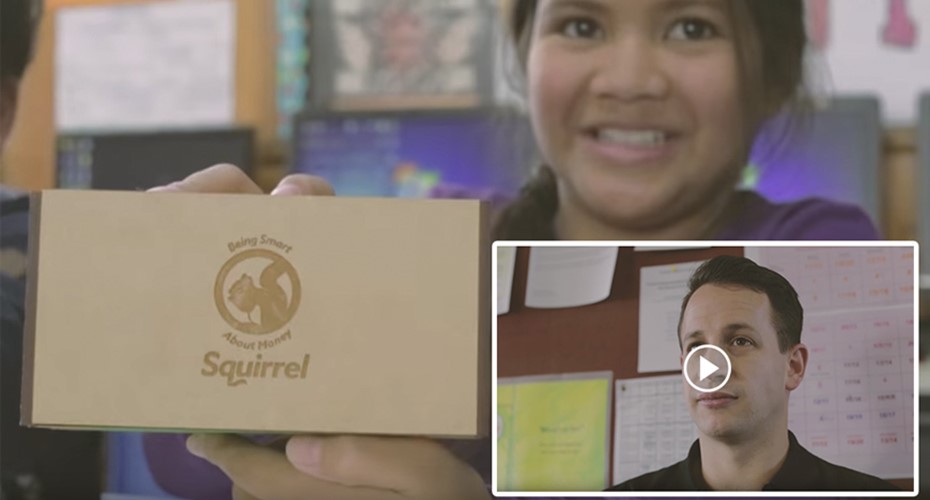The value of teaching kids the value of money

It was Nelson Mandela who said “Education is our greatest weapon to change the world”.
So about six months ago, when we started a 10 week financial literacy programme at Massey Primary School, it was with a view to doing just that. What started out as a chance to give back to the community I grew up in, turned into one of the most enjoyable experiences of my life and a real opportunity to improve the future of 120 kids. On top of that, it is fair to say my appreciation for teachers significantly increased over the course of those three months.
Project “Squirrel Kids” was a joint venture with Mind Treasures in the US. It was a 10 week program where we went into Massey Primary every Thursday for four hours, teaching four classes back to back. For people who have never taught before, this was intense! The objective was to teach the children the value of money, and to go far deeper than simply what money is and how the system works. The sessions included videos and discussions on global issues from water supply in remote parts of Africa to families who generated income by picking up rubbish at night in Mexico. The students learned to be grateful for what they have and to not take things for granted. This had a flow on affect into their homes with dinners being eaten rather than wasted, and chores being done in order to earn pocket money. Each week they received $20 pocket money (Squirrel $$$) which they then allocated into four separate categories. $10 would always go into their “spend” fund which allowed for life’s necessities (food/water/shelter/clothing). This discipline was to show that it was these most important items where their income should be first spent before buying luxuries. With the remaining $10, the students then had a choice to make as to whether it went into saving, sharing or investing. It was no surprise that in the first couple of weeks, everything went into savings, which was essentially where they put money to save for their own wants. By the end of the program, their allocation was leaning far more towards sharing and investing as they learned the benefit of helping those in need and investing into their future rather than buying junk.
The feedback has been overwhelming with the kids, their parents and the teachers all commenting on the real difference we were able to make. These may seem like basic understandings to you as a reader, but consider that it’s a lack of these fundamental basics that is causing the excessive debt in NZ and around the world and more than that, it’s leading to financial stress on families which leads to domestic violence and theft. A better foundation on financial literacy will in turn result in a better future for these kids, and their future families which of course, impacts all of us. Watch our 2 and a half minute video on project Squirrel Kids below.
Receive updates on the housing market, interest rates and the economy. No spam, we promise.
The opinions expressed in this article should not be taken as financial advice, or a recommendation of any financial product. Squirrel shall not be liable or responsible for any information, omissions, or errors present. Any commentary provided are the personal views of the author and are not necessarily representative of the views and opinions of Squirrel. We recommend seeking professional investment and/or mortgage advice before taking any action.
To view our disclosure statements and other legal information, please visit our Legal Agreements page here.

